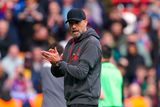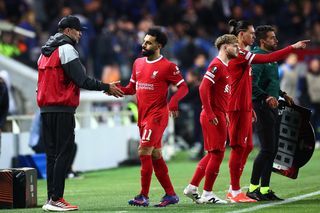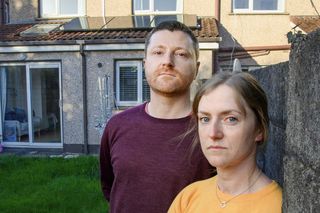Jonathan Liew: 'The idea that sport is somehow 'above politics' remains a surprisingly tenuous one'
Henrikh Mkhitaryan
The Baku pogrom began on 12 January 1990, when a nationalist rally in Azerbaijan’s capital quickly turned ugly, and huge crowds took to the streets in search of the city’s dwindling but significant Armenian population. By this point, Azerbaijan and Armenia had been at war for two years, a period that had seen mass expulsions and unspeakable atrocities on both sides. Most of the 250,000 Armenians living in Baku at the start of the war had already fled, but around 50,000 remained, and encouraged by a rising tide of anti-Armenian sentiment within the city, these were the ones now being hunted down.
Over the next few days, no Armenian in Baku was safe. The mob was brutal but well-organised, carrying lists of names and addresses, moving methodically from street to street. The elderly were dragged from their homes and beaten. Many were burned alive. Reports of rape and mutilation were commonplace. An Azerbaijani soldier later described seeing a naked woman being thrown to her death from the window of her flat. Another eyewitness describes a man literally being ripped to shreds in the street, and his remains thrown into a bin.
Nobody really knows how many Armenians were murdered that week. Those who survived wasted no time in getting out. Today the Armenian population of Baku is estimated at around 100, almost all of whom are either of mixed heritage or have married into Azerbaijani families. And it is neither to take sides, nor to parse or flatten the history of an exceptionally complex and intractable conflict, to suggest that when Henrikh Mkhitaryan says he doesn’t feel safe travelling to Baku for Wednesday’s Europa League final, he probably knows what he’s talking about.
As Arsenal take on Chelsea for the right to be knocked out in next season’s Champions League group stage, Mkhitaryan will be at home. Despite assurances from Uefa and the Azerbaijani authorities, he decided in consultation with his family that he would not be safe, particularly on the pitch. "It’s the kind of game that doesn’t come along very often for us players," he said. "I must admit, it hurts me a lot to miss it." The club have demanded a meeting with Uefa over what they have described as an "unacceptable" situation.
Mkhitaryan was less than a year old when the Baku pogrom occurred. By then, his family had moved from Yerevan to Valence in south-east France to escape the violence. But for any Armenian growing up in the foothills of a bloody war, the traumatic collective memory of events like the Baku pogrom, and a similar slaughter in the eastern town of Sumgait a couple of years earlier, would have been passed down like an heirloom.
The two countries remain technically at war, and while the violence may have died down, the virulence is as strong as ever. According to a 2012 opinion poll, 91 per cent of Azerbaijanis perceive Armenia as their "biggest enemy". Those of Armenian descent – even if they are not Armenian citizens – are routinely denied entry to the country. "Armenia is not even a colony, it is not even worthy of being a servant," an Azerbaijani called Ilham Aliyev tweeted in early 2015, which would have been alarming enough even if you didn’t know he was the country’s president.
Perhaps it’s not beyond the bounds of reason, then, that when Azerbaijan issued an open invitation to traipse the streets where his fellow Armenians were murdered just a generation ago, Mkhitaryan was prepared to err on the side of caution. It is, said Mkhitaryan’s former manager Arsene Wenger, "something that should not happen within football. I feel it’s not normal that in 2019 – inside Europe, with very sophisticated democracies – that you cannot play for political reasons."
Wenger’s not often wrong, but he was here. It has become extremely normal for politics to get in the way of sporting competition, whether it is Xherdan Shaqiri being left out of Liverpool’s trip to Red Star Belgrade because of his Kosovar-Albanian heritage, or Spain and Gibraltar being forcibly separated in the qualifying draws for major tournaments, or India and Pakistan not playing a bilateral cricket series for seven years. And yet the idea that sport is somehow "above politics", or should be separate from the swirling and dangerous currents surrounding it, remains a surprisingly tenuous one.
This, certainly, has been the Azerbaijani line. "We at all times put the sport as something very separate from these political issues, and of course the same issue is again with Mkhitaryan," said the country’s minister of sport. On Wednesday, meanwhile, the Azerbaijani ambassador to the UK, Tahir Taghizade, appeared on the respected international news network Talksport to face questions from those two noted experts in the field of Caucasus politics, Jim White and Simon Jordan.
"There is absolutely no problem for Azerbaijan to receive Mkhitaryan,” Taghizade told the audience. “His physical safety is assured by every word I say." He pointed out that four years ago a team of 25 Armenian athletes had visited Baku for the European Games and not been physically harmed, although he neglected to mention that they were viciously booed by the home crowd whenever they appeared. Unsurprisingly, he did not mention the pogroms, or the Armenians being burned alive in the street. It wasn’t the time for that.
Still, it seemed to be good enough for White and Jordan. "It’s about character, it’s about substance," said the former Crystal Palace chairman, comparing Mkhitaryan’s pathetic, snowflakey withdrawal to Denis Bergkamp’s refusal to fly to European away trips. "If the security services can provide the inspiration, then what are we talking about?"
There are still regular exchanges of gunfire between the two countries’ troops. There are certain areas along the border that remain thick with landmines. But in one sense, the battle has already been won and lost. Azerbaijan are the ones with the vast oil reserves, and over the last two decades have been developing the political clout to match. Uefa’s decision to award Baku the Europa League final, despite anything remotely resembling a suitable transport or tourism infrastructure, is simply the latest example of how a little gushing black gold will grease open even the sturdiest of locked doors.
As well as the Europa League final, Baku has a Formula One grand prix and next summer will host four matches at Euro 2020. The biggest sporting event that Armenia has hosted to date, meanwhile, has probably been the 2010 Greco-Roman Wrestling World Cup. Now, its country’s most famous athlete is being denied the chance to play one of the biggest games of his life.
Here’s the thing, though. In a few days, once the Mkhitaryan issue has had its moment in the spotlight and the presenters on Talksport have long since moved on to thornier geopolitical issues like the South China Sea dispute or the ongoing Islamist insurgency in Mozambique, all this will die down. Then, on Wednesday evening, a referee called Gianluca Rocchi will pop a whistle between his lips, and in that instant every single word written or spoken on this subject will be forgotten. That’s the beauty and the horror of sport.














